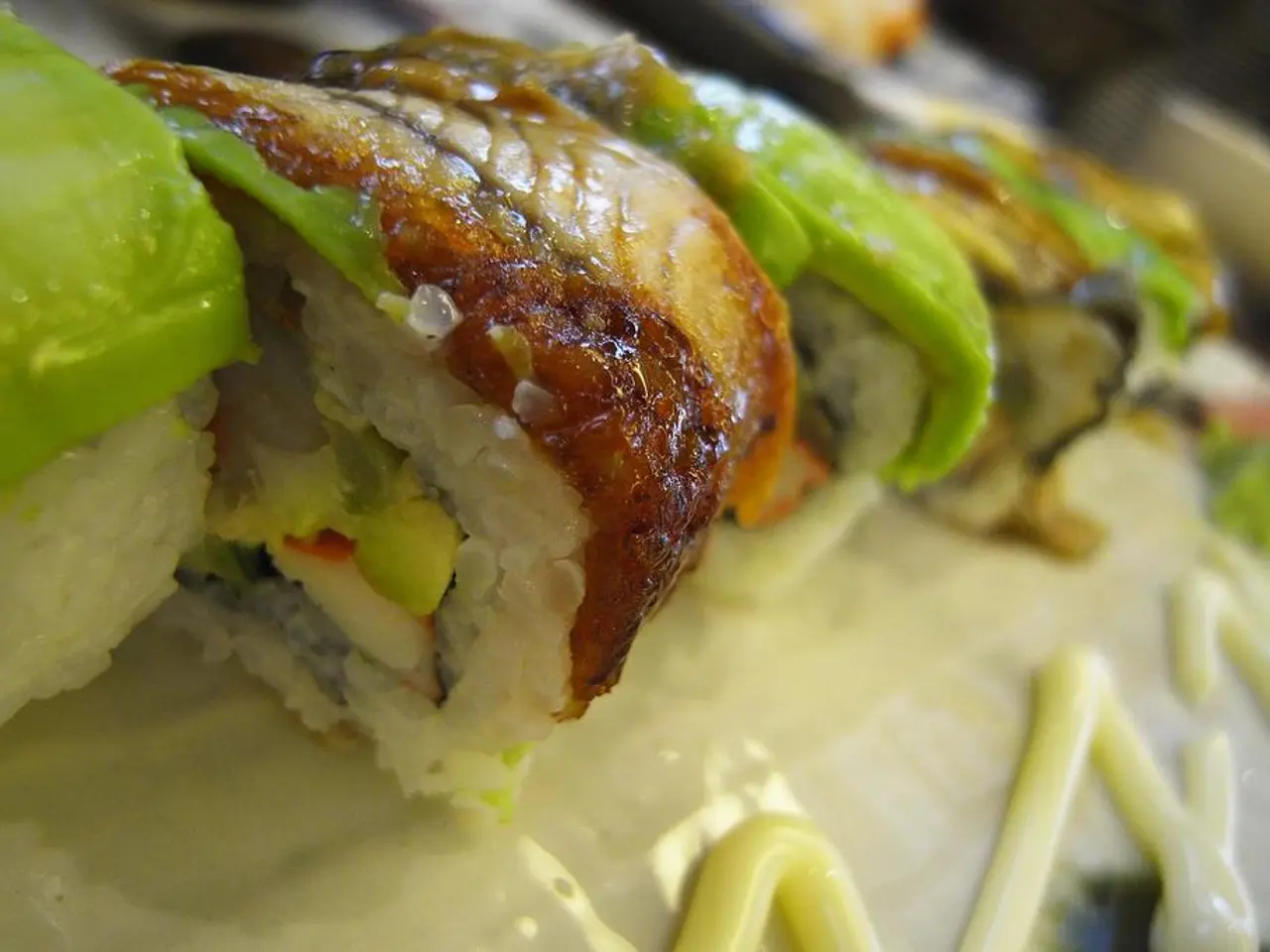Post-Colon Cancer Treatment Diet: Edible Options and Foods to Shun
After undergoing treatment for colon cancer, which may include surgery, chemotherapy, and radiotherapy, it's essential to focus on a diet that supports digestive recovery, maintains nutritional status, and reduces the risk of recurrence.
Key guidelines for post-treatment diet include:
- Eat small, frequent meals of soft, well-cooked, and easily digestible foods. This approach minimizes gastrointestinal irritation and helps manage symptoms like bloating, cramps, diarrhea, or nausea post-treatment [1][2].
- Prefer low-fiber foods initially, such as peeled and cooked vegetables, white bread, and pasta, as the digestive system may be fragile after surgery or radiotherapy [1].
- Emphasize high-protein and calorie-rich foods like lean meats, fish, eggs to help repair tissues and maintain muscle mass, especially important after surgery and chemotherapy [1][4].
- Avoid or limit foods that can irritate the gut, including raw cruciferous vegetables, pulses, fried and spicy foods, citrus fruits, caffeine, and fizzy drinks [1].
- Stay well hydrated with water, herbal tea, and other non-irritating fluids to prevent dehydration commonly caused by chemotherapy or radiation side effects [2].
- Adopt an anti-inflammatory diet rich in leafy greens, orange vegetables (carrots, sweet potatoes), berries, whole grains (brown rice, oats), healthy fats (olive oil, nuts), and lean proteins (fish, chicken). This diet resembles the Mediterranean diet and may reduce inflammation, improve survival, and reduce recurrence risk [3].
- Work with oncology nutrition experts to tailor dietary plans based on treatment side effects and personal nutritional needs, potentially including use of supplements like vitamins, minerals, or probiotics [2][4].
Dietary management after colon cancer surgery often requires gradual reintroduction of fiber as tolerated, meticulous chewing, and avoiding large or heavy meals to reduce bowel discomfort [1].
In summary, the approach is to consume small, frequent, low-fiber meals that are gentle on the digestive system initially, emphasizing protein and calories for healing, while moving toward an anti-inflammatory, nutrient-dense diet during recovery to support overall health and reduce recurrence risk. Hydration and professional nutrition guidance are also critical throughout post-treatment phases [1][2][3][4].
Post-treatment, a person's diet should continue to focus on good nutrition, and they may find it beneficial to eat foods that are soft, low in fiber, and easy to digest. It's important to remember that everyone's nutritional needs are unique, and consulting with a healthcare professional or a dietitian can provide personalized advice.
References:
[1] American Cancer Society. (2021). Eating well during and after cancer treatment. Retrieved from https://www.cancer.org/treatment/treatments-and-side-effects/food-and-eating/eating-well-during-and-after-cancer-treatment.html
[2] National Cancer Institute. (2019). Nutrition during and after cancer treatment. Retrieved from https://www.cancer.gov/about-cancer/treatment/side-effects/appetite/nutrition-during-and-after-treatment-pdq
[3] AACR. (2019). Diet and cancer prevention. Retrieved from https://www.aacr.org/patients-caregivers/find-cancer-information/cancer-topics/diet-and-cancer-prevention.html
[4] American Institute for Cancer Research. (2020). Food, nutrition, physical activity, and the prevention of cancer: a global perspective. Retrieved from https://www.aicr.org/research/foods-that-fight-cancer/foods-that-fight-cancer-research-update.html
Read also:
- West Nile Virus detected in Kentucky for the first time; authorities advise locals to adopt safety measures
- Digestive issues: Understanding causes, remedies, and further details about acid reflux and excessive burping
- Exploring Botox as a Treatment for Interstitial Cystitis: Insights, Adverse Effects, and Further Details
- Information on Lucentis: Its Form, Strengths, Administration Method, and Additional Details





